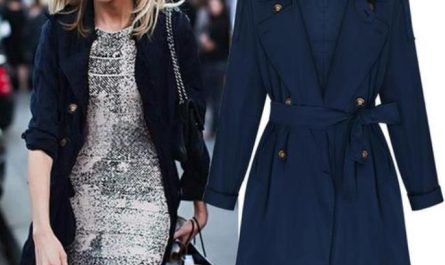Understanding Sustainability and Ethics in Fashion
Sustainability in fashion encompasses the environmental impact of clothing production. This includes the use of resources, waste management, carbon emissions, and the longevity of garments. Sustainable fashion aims to reduce the industry’s footprint by using eco-friendly materials, improving manufacturing processes, and encouraging recycling and circularity.
Ethical fashion, on the other hand, focuses on the social aspects of production. This involves fair labor practices, safe working conditions, and ensuring workers are paid a fair wage. Ethical fashion brands strive to ensure that their entire supply chain adheres to high standards of human rights and worker welfare.
Key Factors to Consider When Choosing Eco-Friendly and Ethical Brands
- Material ChoicesOne of the most significant factors in sustainable fashion is the choice of materials. Look for brands that use organic cotton, which avoids harmful pesticides and chemicals. Recycled materials, such as recycled polyester or nylon, help reduce waste and lessen the demand for virgin resources. Innovative fabrics, like Tencel or hemp, are also environmentally friendly options due to their low impact on natural resources and their biodegradability.
- Manufacturing ProcessesThe way a brand manufactures its products can greatly affect its sustainability. Ethical brands often use low-impact dyeing processes, reduce water consumption, and minimize waste. Brands that prioritize transparent production processes are more likely to be committed to sustainability. Check for certifications like Global Organic Textile Standard (GOTS) or OEKO-TEX, which indicate that the manufacturing processes meet high environmental and social standards.
- Labor PracticesEthical fashion brands prioritize fair labor practices. This includes ensuring that workers are paid fair wages, work in safe conditions, and are treated with respect. Certifications like Fair Trade or membership in the Ethical Trading Initiative can help identify brands that uphold these principles. Additionally, brands that are transparent about their supply chains and openly share information about their labor practices are generally more trustworthy.
- Longevity and DurabilityInvesting in high-quality garments that are designed to last longer can significantly reduce the frequency of replacements and contribute to a more sustainable wardrobe. Brands that focus on durability often use superior craftsmanship and high-quality materials. Additionally, some brands offer repair services or guidance on how to care for garments to extend their lifespan.
- Circularity and RecyclingThe concept of circular fashion involves designing products that can be easily repaired, repurposed, or recycled. Brands that take back old garments for recycling or offer programs to resell second-hand items are contributing to a circular economy. This helps to close the loop and reduce the overall waste associated with fashion.
- Transparency and CertificationTransparency is a key indicator of a brand’s commitment to sustainability and ethics. Look for brands that are open about their sourcing, manufacturing processes, and labor practices. Certifications from reputable organizations can also provide assurance of a brand’s ethical and sustainable practices. For example, the B Corporation certification indicates that a company meets high standards of social and environmental performance.
Finding the Right Brands
To find brands that align with your values, start by researching companies that have a strong commitment to sustainability and ethics. Here are a few strategies to help you discover eco-friendly and ethical fashion brands:
- Use Ethical Fashion DirectoriesOnline directories and apps dedicated to ethical fashion can be invaluable resources. Platforms like Good On You, Ethical Consumer, and the Fashion Transparency Index provide ratings and reviews of various brands based on their sustainability and ethical practices.
- Support Local and Independent BrandsLocal and independent brands often have more transparent supply chains and a greater focus on sustainability. Supporting these brands not only helps reduce the carbon footprint associated with shipping but also fosters local economies and encourages responsible production practices.
- Educate Yourself and Stay InformedThe fashion industry is constantly evolving, and new sustainable practices and brands are emerging all the time. Staying informed about the latest trends in ethical fashion and continuously educating yourself about the impact of your purchases can help you make more informed decisions.
Conclusion
Choosing eco-friendly and ethical fashion brands is a powerful way to contribute to a more sustainable and just world. By focusing on material choices, manufacturing processes, labor practices, durability, and transparency, you can make purchasing decisions that align with your values. With a growing number of brands committed to sustainability and ethics, making conscious fashion choices has never been easier. Remember, every purchase you make has the potential to support positive change in the fashion industry and beyond.




